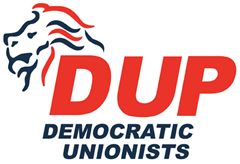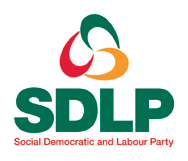Party policy summary
agendaNi outlines the parties’ main proposals for policing and justice policy. Commitments are from Assembly manifestos unless otherwise stated.
Minister: David Ford MLA
Spokesman: Stewart Dickson MLA
Policing Spokesman: Trevor Lunn MLA
Dealing with sectarianism and paramilitary activity is a key priority for Alliance, which seeks “an Executive-wide focus on tackling paramilitarism”.
A shared future means improved relations at interfaces (including fewer barriers), robust sentencing for sectarian offences, and tackling other forms of hate crime. Individual decisions are a matter for the judiciary but more consistency is needed across the system.
Alliance would consider incentives for early guilty pleas, to reduce delay, continue to pursue legal aid reform, and place the Prisoner Ombudsman and the code of practice for victims on a statutory footing.
The party stresses the importance of preventing offending in the first place, holding offenders to account and reducing reoffending within a strategic framework for managing offenders.
Other proposals include a single strategy to tackle domestic and sexual violence, and the piloting of domestic violence protection orders. Three bills are prioritised: on fairer and faster justice, miscellaneous provisions, and reforming the retention of DNA and fingerprint data. Alliance’s Westminster manifesto calls for the end of permanent storage of non-offenders’ DNA (unless they consent) and the removal of under 16s’ DNA profiles (except for violent and sexual offenders).
Assembly Spokesman: Paul Givan MLA
Westminster Spokesman: William McCrea MP
Policing Spokesman: Robin Newton MLA
Most DUP justice commitments confirm its tough and populist image, including stronger maximum sentences for sex offences and offences against children or older people, letting householders use force against intruders, a clampdown on beggars, and fewer speed cameras. A version of ‘Sarah’s law’ would allow parents to investigate whether children’s workers are on the sex offenders register.
However, other proposals emphasise rehabilitation and options beyond prison e.g. early intervention to prevent offending, asset seizure for fine default, and ‘social impact bonds’ whereby contractors work to reduce reoffending. The average annual cost per prisoner must be reduced. Its Westminster manifesto recognised the need to improve prisoners’ mental health and treat personality disorders.
The DUP opposes separated status for paramilitary prisoners. Innovations include piloting online or televised coverage of courts, permitting wiretap evidence, and a strategy to deal more effectively with white collar crime. Its 2010 Westminster manifesto defended its support for 42-day detention of terror suspects.
Assembly Spokesman: Raymond McCartney MLA
Oireachtas Spokesman: Jonathan O’Brien TD
Policing Spokesman: Gerry Kelly MLA
Sinn Féin’s emphasis is on holding the justice system to account. Specific objectives include the civilianisation and modernisation of police stations “as necessary”, adequate support for victims at all stages of the justice process, and moving under 18s from Hydebank Wood young offenders’ centre to Woodlands juvenile justice centre. Legal aid reforms should protect disadvantaged clients and prosecutors should be obliged to explain decisions to drop charges to victims and relatives. The party calls for the reinstatement of 50:50 police recruitment to reach a target of 40 per cent “nationalist/republican personnel”; Catholic representation was 30.3 per cent as of 1 November 2011.
In its Westminster manifesto, the party backed closer cross-border co-operation in policing and called for an all-island review of sentencing and penal reform. More resources were needed for youth and restorative justice. In the Republic, Sinn Féin supports the recruitment of extra gardaí and the end of political appointments to state boards, despite favouring a PSNI recruitment freeze and appointing political members to the Northern Ireland Policing Board.
Assembly Spokesman: Alban Maginness MLA
Westminster Spokesman: Mark Durkan MP
Policing Spokesman: Conall McDevitt MLA
The party continues to support 50:50 recruitment, aiming for a 40-44 per cent Catholic composition in the PSNI. It sought to end the UDA-linked Conflict Transformation Initiative (October 2007) and opposes funding community groups linked to paramilitary organisations.
The “costly, dysfunctional, security-driven” Prison Service needs a Patten-style overhaul, including a smaller prison population, a new female prison, and proper treatment of all mentally ill inmates. More radical ideas include “due consideration” of prison privatisation and allowing prisoners to vote in general elections (to add a sense of responsibility).
“Deep and enduring change” within the Public Prosecution Service would involve explaining the reasons for dropping or reducing charges, the introduction of time limits (if necessary), and a possible ‘policing board’ model for governance.
A comprehensive review of criminal offences is proposed. District judges are urged to consider non-custodial sentences for minor offenders, to save money. Restorative justice must be led by the state. A cut in the legal aid budget to £79 million (from £102 million in 2010-2011) is supported but safeguards are sought for voluntary groups e.g. the Citizens Advice Bureaux. The Westminster manifesto overlaps with the Assembly version.
Spokesman: Basil McCrea MLA
Policing Spokesman: Ross Hussey MLA
The UUP supports the introduction of independent domestic violence advisors and demands that Northern Ireland be a “hostile place” for human traffickers. It supports early intervention to deal with anti-social behaviour, with staff from a range of government agencies working together. The party is “mindful of the need for change” in the Prison Service and criticises a system “which seems to favour short sentences, suspended sentences, community orders or ‘letting-off-with-a-warning’.”
Following on from the 2010 UCUNF manifesto, the UUP continues to support stronger legal protection for members of the public who apprehend criminals, act to stop a crime, or defend themselves against intruders in their homes. A greater emphasis on victims’ needs is sought. Programme for Government goals include introducing independent domestic violence advisers (i.e. from the voluntary sector) and domestic violence protection orders.
The TUV focuses on victims of the Troubles, including prosecutions and convictions. Terrorism should be opposed by the necessary “political and military steps” and the party claims that prison reform could result in paramilitary control inside prisons. Jim Allister voted against mandatory sentences for violence against older people, as it could compromise judicial independence.
The Greens’ Assembly manifesto supports animal welfare but has no other specific commitments on justice. It calls for an animal welfare agency (with prosecuting powers) and bans on hunting and snares. Asked to explain its justice policy, the party said it wants the system to focus on rehabilitation rather than punishment, and supports restorative justice and raising the age of criminal responsibility from 10 to at least 14. Preventative spending in nursery education, social services and parenting classes can also reduce crime in the longer term.
Report Sponsored by G4S












